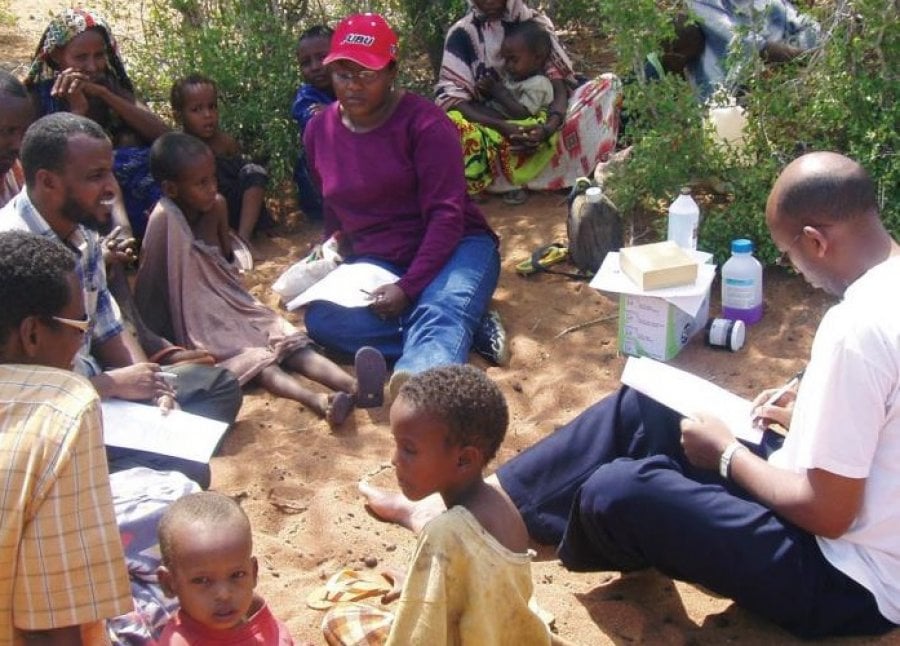£4.1m grant to continue world-leading research into health problems in low and middle-income countries
13 February 2018 London School of Hygiene & Tropical Medicine London School of Hygiene & Tropical Medicine https://lshtm.ac.uk/themes/custom/lshtm/images/lshtm-logo-black.png
The London School of Hygiene & Tropical Medicine (LSHTM) has been awarded more than £4m by the Medical Research Council (MRC) for continued research into the health problems of low and middle-income countries (LMICs), which include emerging infectious diseases, adolescent health and non-communicable diseases. The work will be conducted by LSHTM's MRC Tropical Epidemiology Group (TEG), led by Professor Helen Weiss.
Over a five-year period the new funding will allow the group of around 30 epidemiologists and statisticians to continue their world-leading epidemiological studies in LMICs, and to expand research in areas of increasing global public health importance. This will include research into HIV, tuberculosis, malaria, mental health and neglected tropical diseases, with much of the work carried out in Africa and Asia. It will also expand TEG’s applied methodological research, for example on the design and analysis of cluster randomised trials and stepped wedge trials.
One area that will particularly benefit from the MRC grant is the TEG Fellowship Scheme, which aims to increase the number of researchers with epidemiological and statistical skills in LMICs. The Fellowship Scheme supports African students through LSHTM's MSc in Medical Statistics, followed by a one year placement at a collaborating institution in Africa, with ongoing mentorship.
Professor Weiss, Director of TEG, said: “I am delighted that we have received this funding from the Medical Research Council, which will allow us to continue our long-standing and vital work into the health problems that low and middle income countries face.
“Many of the diseases we focus on disproportionately affect the poorest people in resource-poor countries, who are often already marginalised from society. By focusing on evaluating strategies to better prevent and treat major public health conditions, we have the potential to alleviate poverty as well as improve life expectancy.
“We are particularly excited that this funding will allow us to expand our Fellowship Scheme. By taking Fellows through their MSc in Medical Statistics and mentoring them through a placement year, we support them as early-career researchers. The Fellowship Scheme reflects our commitment to strengthening capacity around medical statistics in sub-Saharan Africa.”
LSHTM's short courses provide opportunities to study specialised topics across a broad range of public and global health fields. From AMR to vaccines, travel medicine to clinical trials, and modelling to malaria, refresh your skills and join one of our short courses today.